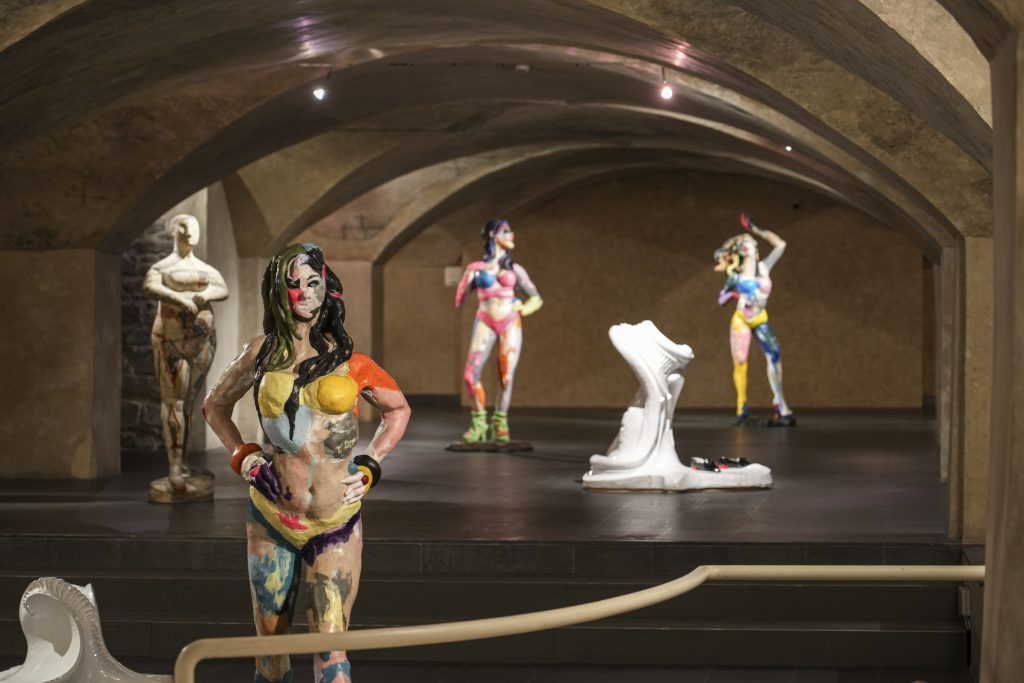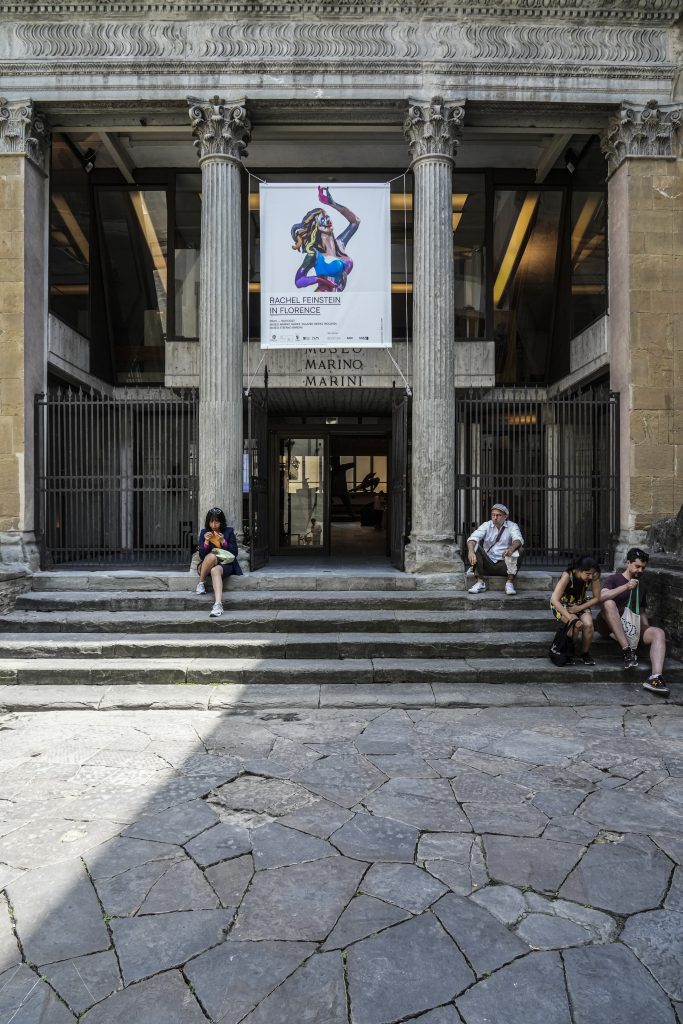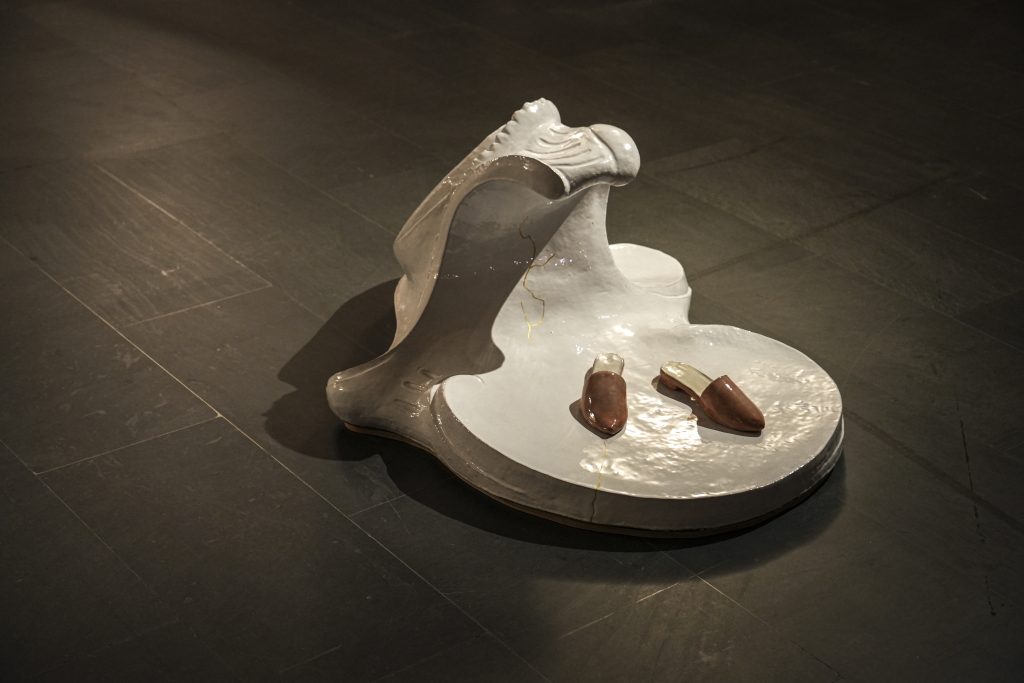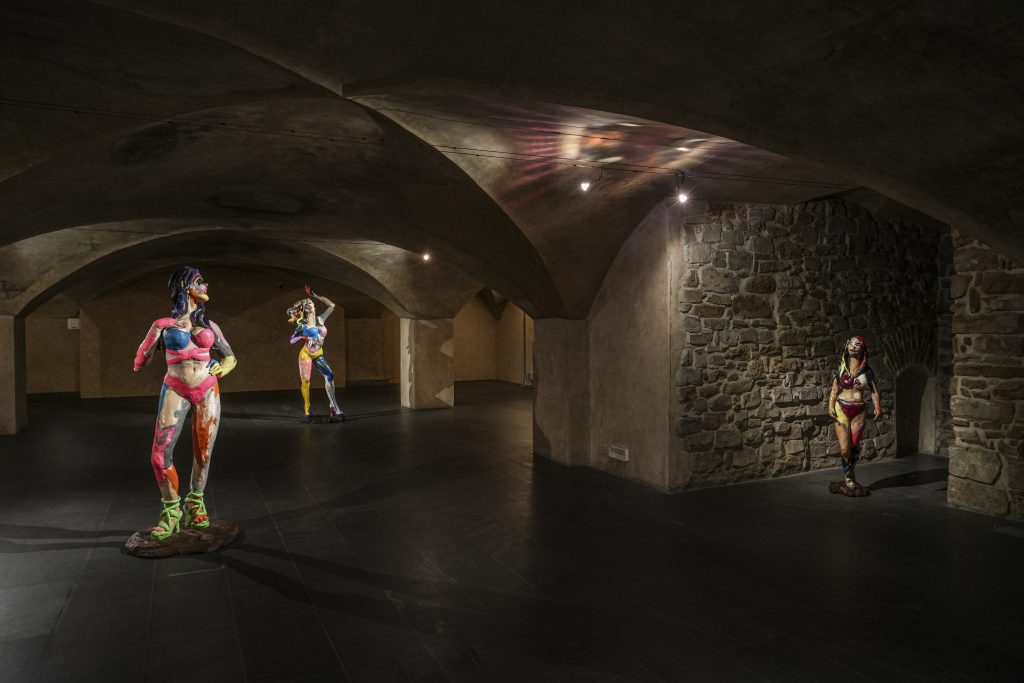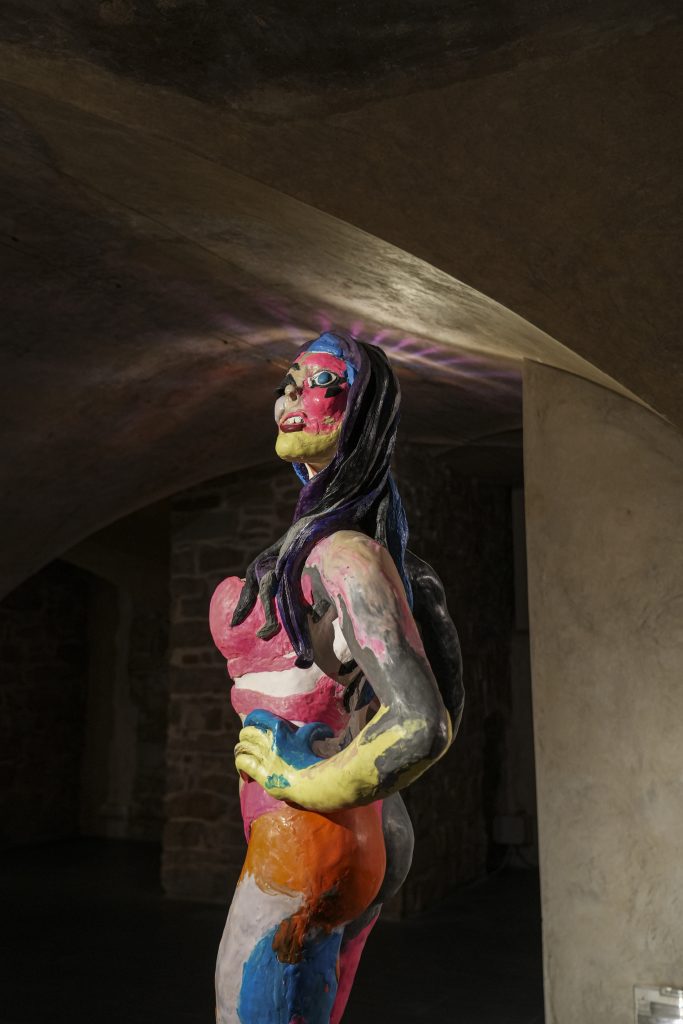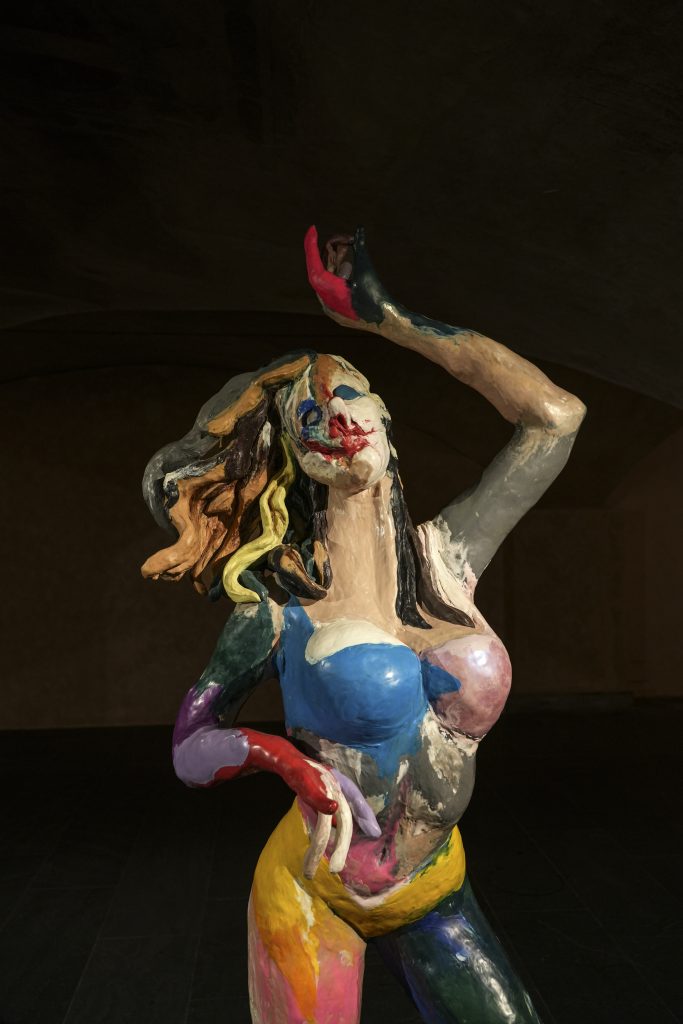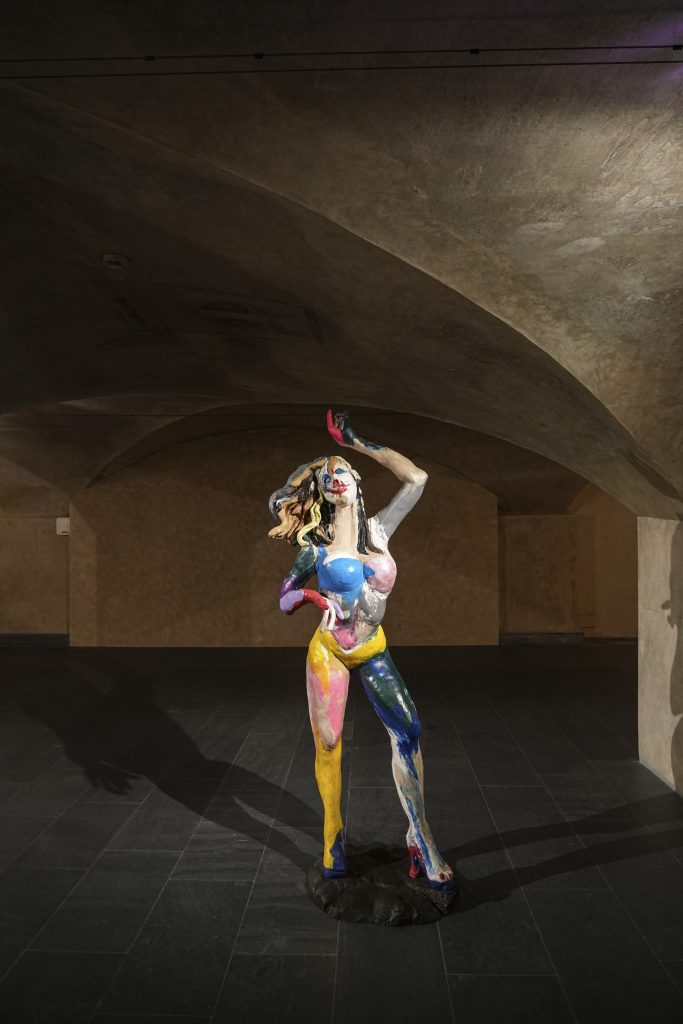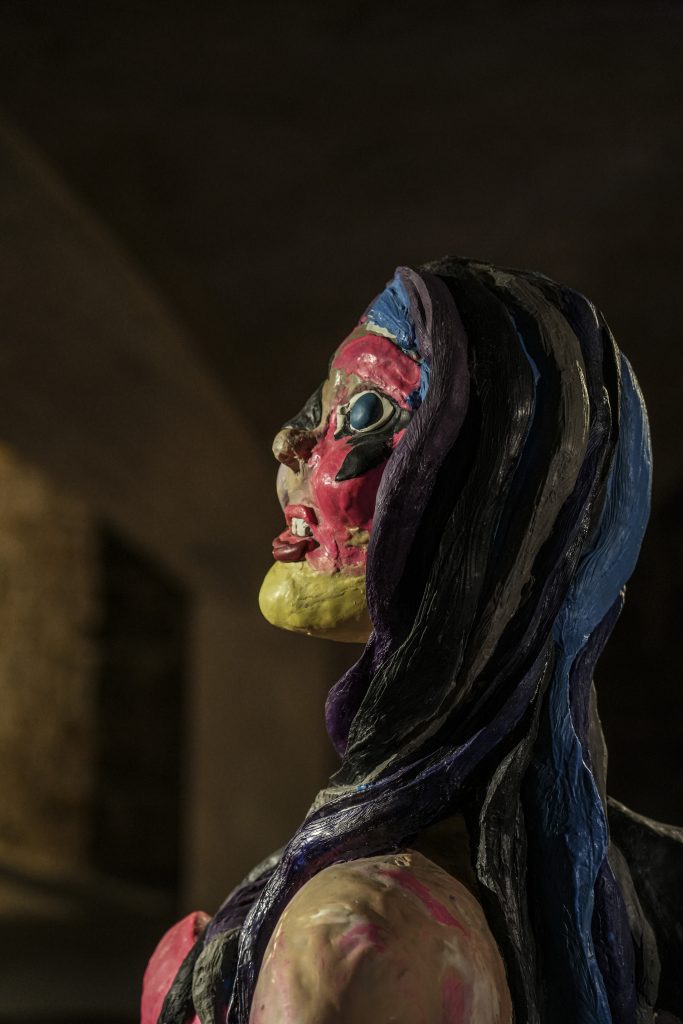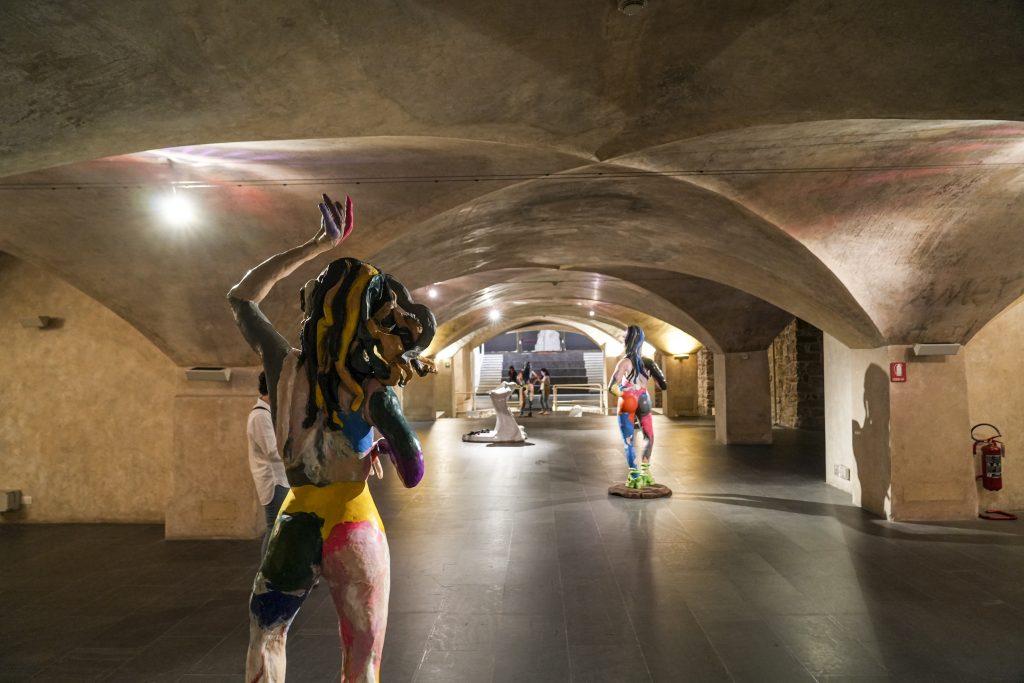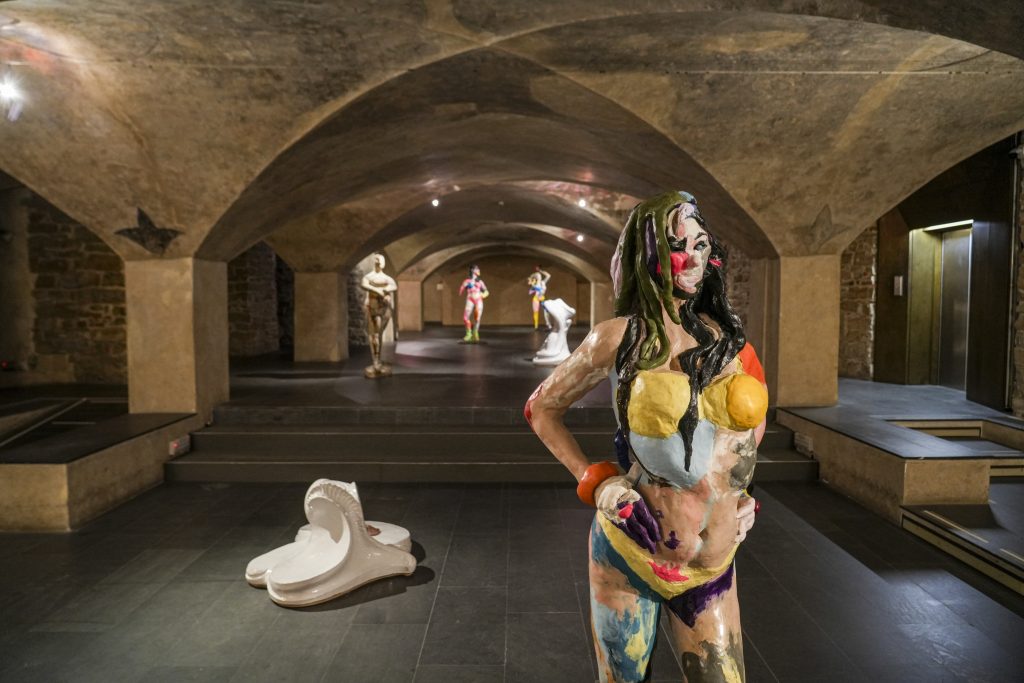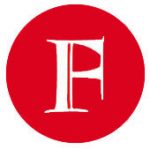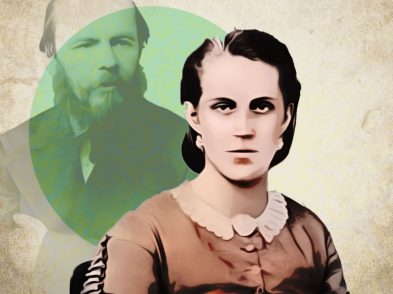Something’s afoot in the crypt of the mesmerizing Marino Marini Museum. Down the steps, onlookers are immediately seized by the dancing, voluptuous and vibrant women, almost sacrilegiously alive, in the inner sanctum of the former San Pancrazio church. Welcome to Rachel Feinstein in Florence, a monographic exhibition across three sites in the Renaissance city: Museo Stefano Bardini, Palazzo Medici Riccardi and here at Museo Marino Marini.
Born in Fort Defiance, Arizona, the American sculptress raises the voice of women in this impactful tripartite show curated by Sergio Risaliti and Stefania Rispoli. Bedecked in shouty shades, neon-hued platform shoes and strappy lingerie à la Victoria’s Secrets, the faces are smeared with colours to the point of becoming mask-like, while the low vaulted ceiling presses down on the audacious scene, mimicking the pressures of societal expectation. Alongside the cartoon-like women figures stand late Baroque-style plinths displaying sensible footwear and the archetypal Pomone, inspired by the Etruscan goddesses of fertility.
Alongside the masterpieces at Museo Stefano Bardini, Feinstein’s art continues to reflect on the female figure inspired by saints and religious icons. Seemingly sculpted as wooden bas-reliefs, both Flemish and Donatello-esque Madonnas come to mind. Starting with charcoal sketches capturing the details of certain sculptures, the American artist develops real life scale pastels on wooden panels before painting the images on mirrored surfaces, showing the figures in groups and as individuals. The courtyard and halls of Palazzo Medici Riccardi host ceramic sculptures and paintings that dialogue with the Late-Baroque art of the museum associated with the tastes of the Riccardi family and artists of the time, such as Luca Giordano. Four majolica statues by Rachel Feinstein stand in the Medici garden, bringing a dash of Rococo to what was once the social hub of the palace, while in the Medici interiors an alienating set of paintings on mirrored supports show sumptuous villas with modern touches set in lush gardens where men and women converse amicably.
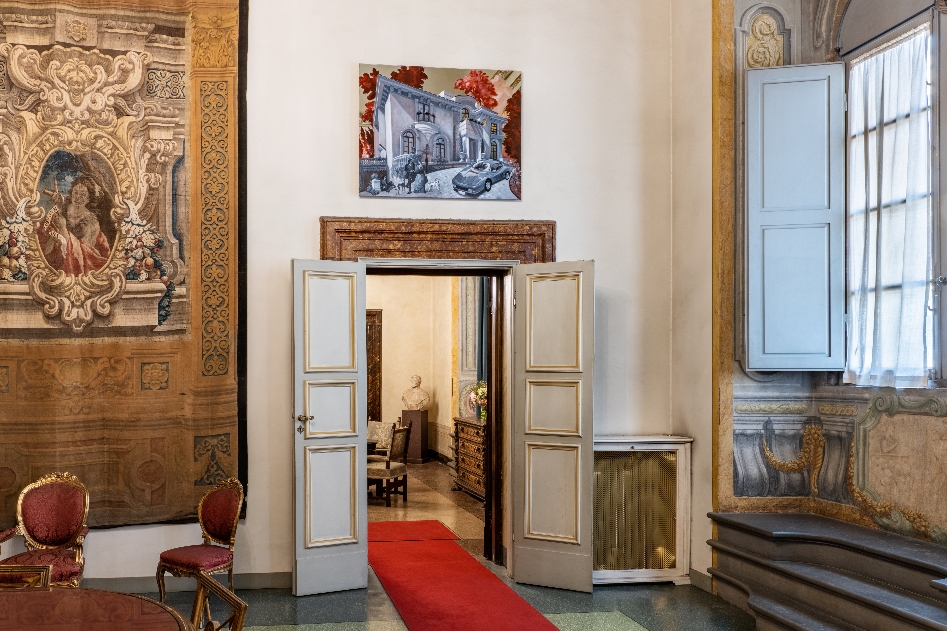
“I have always been interested in depicting a fairytale world before going on to show that type of narration is a complete construct,” explains Rachel Feinstein. “There are always obscure messages hidden behind beauty, and the act of sculpting means listening to that inner voice that tells us what is concealed beneath the surface…I’m very excited to show my art in Florence because Donatello is my absolute point of reference.”
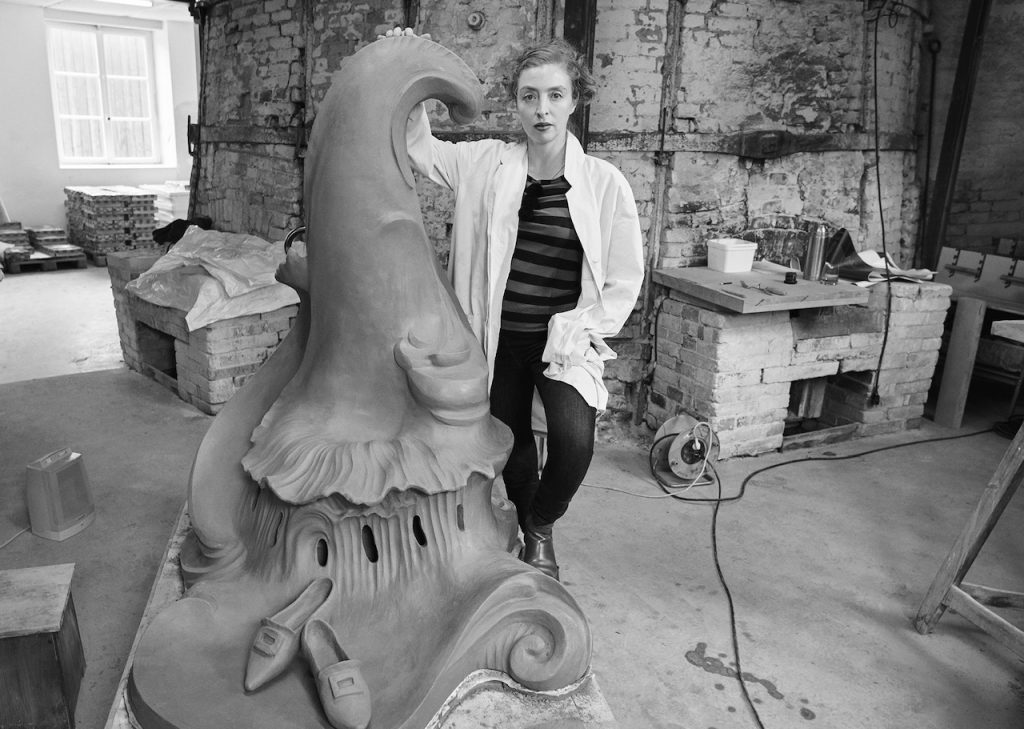
“Years ago, before the pandemic, I walked the halls of Museo Stefano Bardini with Rachel Feinstein, an artist I’ve long admired,” remarks Sergio Risaliti, director of Museo Novecento. “Her concentration on and enthusiasm for the works displayed in the extraordinary collection made me realize how much we need an artist’s gaze to regenerate our perception of cultural heritage, which we all too often consider items of the past. Instead, thanks to contemporary art, these artifacts become alive again, dialoguing and inspiring us. Rachel is an artist who succeeds in being within the avant-garde and modernism, while not being ideologically and formally closed off to a wider debate with the ideological traditions of the past. In this sense, the exhibition instills a sort of osmosis and dialectic with each of the three museums, seizing something unique in each of them and reawakening interest within us: the anti-classical lines of the Renaissance and mannerism at Museo Stefano Bardini; the influence of primitive and polychromatic sculpture at Museo Marino Marini; and the sophisticated and fantastical world of the Rococo at Palazzo Medici Riccardi.”
Rachel Feinstein in Florence
Until September 18
Museo Stefano Bardini (open Friday-Monday 11am-5pm), Palazzo Medici Riccardi (daily 9am-7pm, closed Wednesday), Museo Marino Marini (Saturday-Monday 10am-7pm, open Tuesday-Friday on request)

